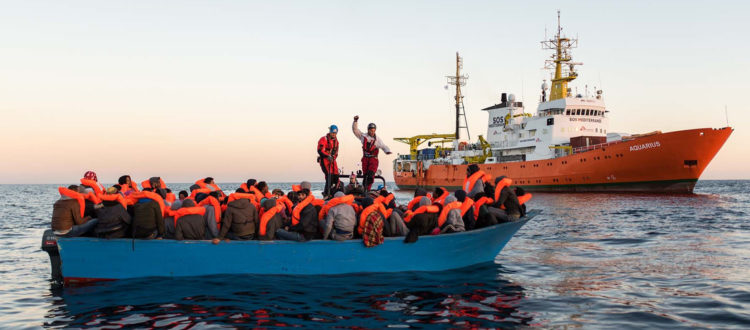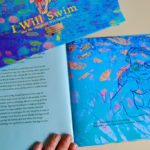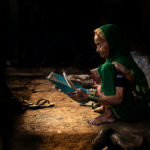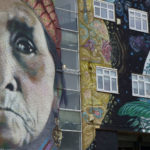The politics of suffering, a growing project in Europe
In France, the yellow vests movement, some of whom are inspired by nationalistic racism and others need community and support, continues to monopolize the attention of social media, forging a large variety of opinions. Some talk about the suffering that pushes them to hit the roundabouts, others talk about shattering the government, all are the product of the neoliberal austerity creed.
The trigger was the implementation of a new tax on diesel fuel that was going to impact mainly the population who has older cars in the outskirts of big city suburbs and the rural population.
Additionally, diesel fuel was once subsidized to serve the interest of oil companies and is now officially identified to be responsible for premature death due to deadly micro particles released in the air after combustion.
Should the concerns be also about climate change with the building of a disaster? Should the perpetuation of economic interests be questioned? Instead of asking these questions, the official discourse from a large political spectrum revolves around consumer purchasing power and unemployment. In this European setting, the term suffering is largely used to depict a large range of social situations.
What does it mean to be suffering in France and elsewhere? Who is suffering?
Here is Trump’s understanding of the notion of suffering: “On behalf of our nation I want to apologize to Brett and the entire Kavanaugh family for the terrible pain and suffering you have been forced to endure.” The suffering endured by Salvadorans, Hondurans and Guatemalans who were facing death at home and now are facing repression going north does not qualify as suffering for Trump and his cronies.
In Europe, the suffering of 49 migrants who had been rescued by humanitarian ships in January has been ignored. This came after the closure of many ports of access, decided arbitrarily by the Italian Government against sea-rescue organizations. These organizations, such as SOS Mediterranée, were created after the end of Mare Nostrum to compensate for the absence of official rescue ships. Now, it is the turn of these non-governmental organizations to be dismantled by the authorities.
The United Nations Refugee Agency, UNHCR, just released a report about refugees/migrants arriving in Europe and at European borders. Reports come with numbers. With an estimated 2,275 people drowned in 2018 in the Mediterranean Sea, the year is a record of deaths compared to the number of arrivals in Europe. More than 1500 people have already died attempting to reach Europe since the beginning of 2019. This situation casts doubt on the decisions by nation-states to remove rescue ships and close land routes rendering traveling to safety very dangerous.
The UNHCR’s Director Pascale Moreau declared: “With the number of people arriving on European shores falling, this is no longer a test of whether Europe can manage the numbers, but whether Europe can muster the humanity to save lives.”
Saving lives would be a good idea, but there is a good deal of suffering awaiting the saved lives when they face asylum process. Incarceration of migrants is on the rise in Europe; that is the project of the Italian minister of interior, Matteo Salvini.
There is another way, leaving them in the streets with the increasing homeless population, thanks to neoliberal austerity. Women are particularly vulnerable when homeless. Every year, the Abbé Pierre Foundation sarcastically rewards the best initiatives to impede the homeless from finding a place to rest in cities. The award called “Les Pics d’or” (golden picks) goes to municipalities, metro stations, even banks. They render public spaces uninviting and uninhabitable with all kinds of devices, picks, individual seats instead of benches, rocks, and massive planters. And then there are the police raids slashing tents given to migrants by humanitarian helpers.
So much work done by the neoliberal technocrats to make the Wretched of the Earth suffer, while the richer are thirsty for help and assistance for their leisured life. Although it seems cliché, this reality of asymmetry is well described in the most recent World Inequality Report.
There is no crisis of migration: only 3% of people migrate, 97 % stay where they are, 70% of African’s migrants remains on the continent, and, in 2017 only 10 % of migrants migrated for economic reasons. In France, only 0.5% of the population is undocumented; although they are eligible to free health care some are dreaming to create administrative devices to impede their access to health care services.
So much confusion about suffering generated by economic austerity, migration. Let’s remember: “Sapiens Africanus was born not in a lattice of sharp borders but rather an open ecosystem, punctuated by climates, shortages, abundances, droughts, and floods, ruptures and junctions, alliances, parasitisms, antagonisms, sharing, and exploitation….” Patrick Chamoiseau in Migrant Brothers, imagine migrant sisters!
(Photo Credit: SOS Mediterranée / Laurin Schmid)






